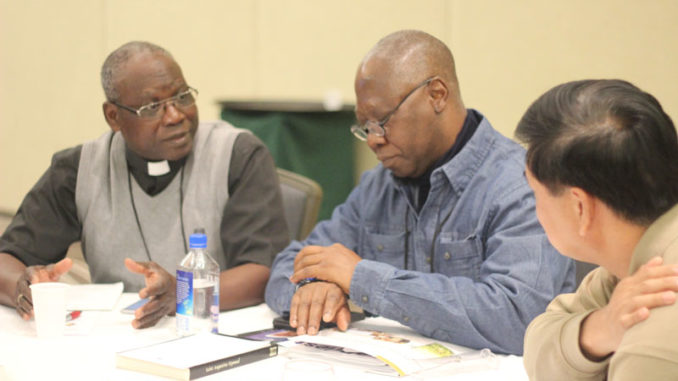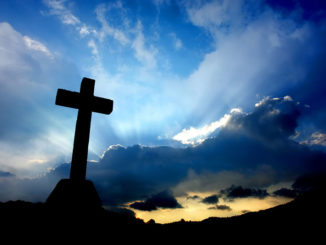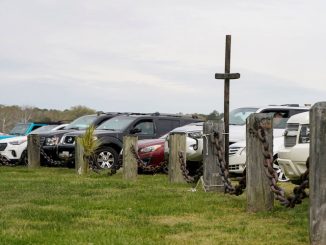
MYRTLE BEACH—The life of a priest is one of constant work for the people of God that he is called to serve. He must spend his time in prayer, celebrate Mass, provide the sacraments and counsel parishioners who need it, deal with administrative duties in parishes and schools, and …. the list is almost endless. Where then, is the time to take care of himself?
Teaching priests how to learn to take time for their own needs — physical, spiritual, and mental — was the focus at the 2020 Convocation for Priests held Jan. 13-16 at the Marriott Grande Dunes.
The theme was “Self-care and Spiritual Direction for Priests,” and the topic was addressed over five days of keynote sessions by Franciscan Father David Songy. Father Songy is president of the St. Luke Institute in Silver Spring, Md., which offers programs that promote the psychological and spiritual health of priests and religious throughout the Church.
He offered suggestions on nurturing spirituality and preventing burnout to 111 priests from around the diocese who attended the four-day event.
Father Songy told the men it was important to pay attention to their physical health and to find ways to rest and take time for themselves, despite busy schedules. This is more important than ever, he said, because of the increased stress being felt in the Church today. The duties of priests in many cases are growing while the number of available clergy declines. The abuse crisis that has been in the news in recent years has also caused an ongoing source of psychological and spiritual stress for the clergy that can lead to burnout.
Father Songy stressed the importance of developing strong, supportive friendships with other priests and encouraged the men to make sure they have a strong spiritual director to turn to regularly.
“Spiritual direction for a priest is a little different than direction for a lay person because they need to find someone who can offer direction that fits their vocation,” Father Songy said. “They need to find someone to talk to, whether it is another priest, a religious, or a lay person, who can help them nurture their own spirituality.”
He suggested that if a separate spiritual director is hard to find, priests might seek out more in-depth conversation with the priests who serve as their regular confessors.
“Confession itself can offer an opportunity for spiritual direction,” he said. “One of the features of Ignatian spirituality is that St. Ignatius focused on having people develop certain virtues and overcoming certain vices. This is one type of spiritual development that could be addressed in the confessional.”
During the four-day session, the priests also attended Mass at St. Andrew Church and heard about the work of different diocesan departments. Kathleen Merritt and others from the Office of Ethnic Ministries spoke on “Evangelization, Saving Lives and Talking Peace,” which offered suggestions on how to improve diversity and inclusion in parishes and schools. There were also presentations by Catholic Charities, the South Carolina Catholic Conference, and the offices of Multimedia, Family Life, and Child Protective Services.


